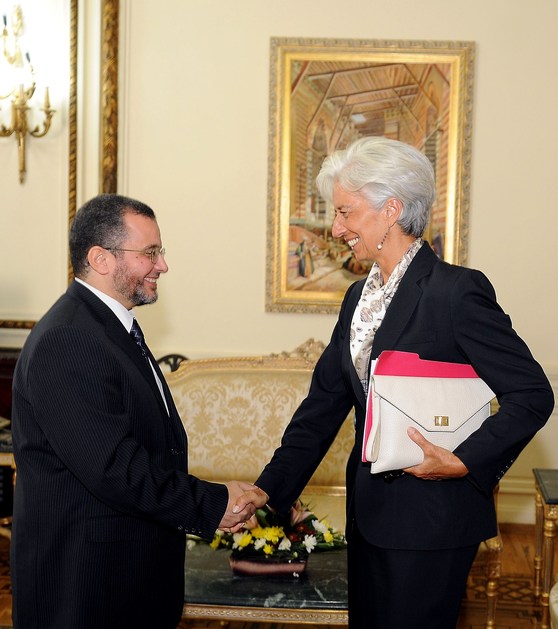CAIRO: After a long holiday, the Shoura Council and the People’s Assembly (PA) reconvened, and preliminary sessions set a full agenda of new laws and proposed amendments expected to keep them busy through the year.
During the first of the Shoura Council’s meetings Wednesday, Prime Minister Ahmed Nazif said that while price hikes coincide with salary increases, the government will implement new policies and strategies to tackle inflation.
Anwar Rasllan, a member of the Shoura Council (upper house of parliament), told Daily News Egypt that Nazif also spoke about the general development plans for the education and healthcare sectors.
Members are expected to debate crucial topics including Eastern Tobacco Company’s plans to cultivate tobacco locally, he added, as well as the government’s plan to sell the Agriculture Development and Credit Bank’s newly-constructed building.
Thanks to last year’s constitutional amendments, Rasllan said, the Shoura Council now works closely with the People’s Assembly to propose and enforce “legislations as well as debate different problems Egypt is facing.
On that note, a number of proposed laws and amendments are expected to be discussed as soon as President Hosni Mubarak officially inaugurates parliamentary sessions next week.
MPs were careful not to foreclose any specific information, but, according to some analysts interviewed by Daily News Egypt, the new anti-terrorism law – part of the constitutional amendments approved in the national referendum in March 2007 – will top the People’s Assembly’s (PA) agenda in the coming parliamentary session.
Discussing the new law and the effects it will have is the top priority because “many argue it will impede human rights and freedom of expression, Hafez Abou Saeda, director of the Egyptian Organization for Human Rights (EOHR), told Daily News Egypt.
According to Abou Saeda, civil society will organize workshops on the importance of human rights and freedom of expression to pave the way for the new law. “These workshops will create a platform for advocating changes to the law if it is indeed found to interfere with freedom of expression and human rights.
The PA’s agenda for the new parliamentary session also includes changing the political rights law set forth in the last parliamentary session, said Diaa Rashwan, political analyst at the Al-Ahram Center for Strategic Studies.
The new law was approved last May after a joint committee comprising of PA and Shoura Council members met to make a final decision on a number of controversial articles.
The Shoura Council proposed making the Supreme Administrative Court’s verdicts on parliamentary election violations not subject to appeal. They also suggested disqualifying candidates who violate the constitutional ban on using religious slogans during elections campaigns. Both proposals to the political rights law were questioned by the PA.
The new political rights law will grant the electoral committee the power to eliminate Muslim Brotherhood candidates who run as independents using the slogan “Islam is the Solution.
Also in dispute is Article 24 of the political rights law, which gives the Ministry of Interior the authority to determine the number and location of polling stations and subcommittees during elections. This amendment was also reportedly not approved by the PA.
Moreover, the law stipulated that the PA and Shoura Council elections be held on the same day under the supervision of a higher electoral committee. Also, the PA is expected to establish a new law to monitor next year’s local council elections.
According to Rashwan, the PA will work on resurrecting “dead syndicates . in a way that solely benefits the government, Rashwan added.
The PA is due to discuss a new law proposed by civil rights and legislative committees of the National Council for Human Rights (NCHR) regulating the building of churches and mosques. However, Rashwan does not see that happening any time soon.
“The government and the PA are adopting an anti-Muslim Brotherhood attitude, says Rashwan, “I do not think the National Democratic Party will begin this parliamentary session by pushing for any law that will make it look like it is supporting Christians over Muslims. Unless, of course, the MB prompts this discussion, Rashwan said.
The new law is meant to replace the current one, which regulates the construction, expansion, and renovation of houses of worship, creating equality between regulations to build churches and mosques. Under the current law, permission from the governor is needed to construct a new church, while the building of a new mosque carries no such requirement.
Also on the agenda – according to Gamal Soliman, media officer at the Ministry of Health – is the approval of laws that would prohibit smoking in public as well as continuing the debate over the controversial new insurance law.
Hamdy El Sayed, head of the health committee and president of the Doctors’ Syndicate, previously told Daily News Egypt that the draft law would oblige the government to cover the medical insurance of the whole population.
Finally, Abou Saeda said, the PA will discuss a new civil society law that, if approved, “is expected to put restrictions on the work of human rights’ organizations and activist.

